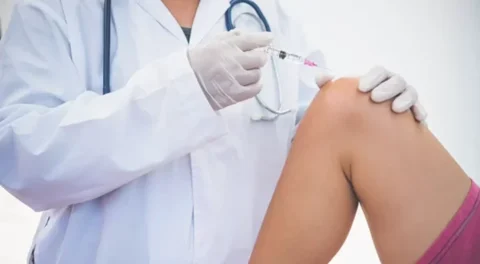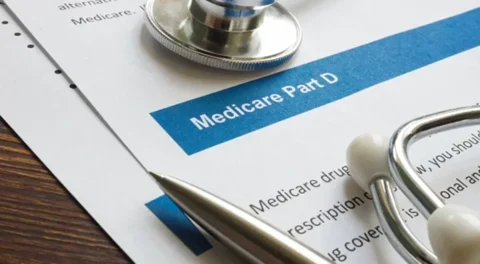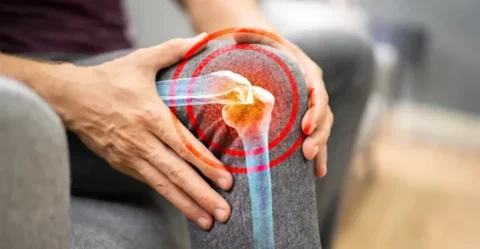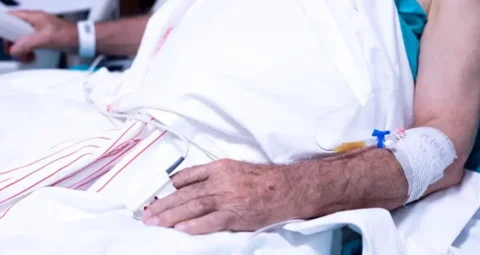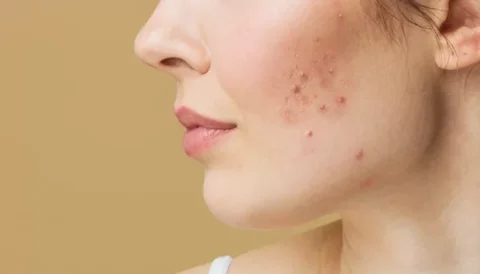Platelet-rich plasma (PRP) therapy is one of the popular treatments for hair loss because of its radical ways to stimulate hair growth. It’s a minimally invasive procedure involving injections of growth factors into the scalp to nourish the hair follicle. Because it uses your own PRP from your blood sample, it’s usually safe and effective for most patients, even those with hereditary hair loss. But this procedure is also a factor why some aren’t ideal candidates for the treatment.
So why can’t patients who’ve abused drugs receive PRP injections for hair regrowth? Patients with a drug abuse history aren’t ideal candidates because drug abuse causes hair thinning or hair loss and low platelet count, which may also be a symptom of underlying autoimmune diseases or other medical conditions. PRP treatment doesn’t address the root cause of your hair loss but only speeds up the healing process of your hair follicle.
Why Patients with Drug Abuse History Aren’t Ideal Candidates for PRP for Hair Loss
PRP therapy is a type of regenerative medicine that uses your own growth factors to stimulate cell growth and promote tissue repair. Because of this, it’s being celebrated due to its radical ways of resolving the common types of hair loss:
- temporary hair loss
- female pattern baldness
- sudden hair loss
- patchy hair loss
It’s also being used as a therapy for other health conditions. Its procedure involving injections of the serum filled with growth factors makes it a versatile and safe treatment that assures little to no risk of allergic reaction. While most patients can benefit from this, those with a history of drug abuse aren’t ideal candidates.
Patients with a history of drug abuse have taken huge amounts of toxins into their bodies, greatly affecting their health, including their blood cell levels. Platelet-rich plasma therapy relies on the patient’s own plasma and platelets, making their health an important factor for the success of the treatment. If a patient doesn’t have enough healthy platelets, the procedure wouldn’t be as successful.
Another reason why patients who’ve been abusing drugs don’t qualify as candidates for PRP for hair treatment is that those types of drugs can also cause hair thinning or hair loss. PRP only provides the scalp and hair follicles a boost of nutrients to grow hair and support the hair shaft, but it doesn’t address the root cause of hair loss. PRP wouldn’t provide the best results since one of the causes of your condition still isn’t being addressed.
How PRP for Hair Regrowth Works
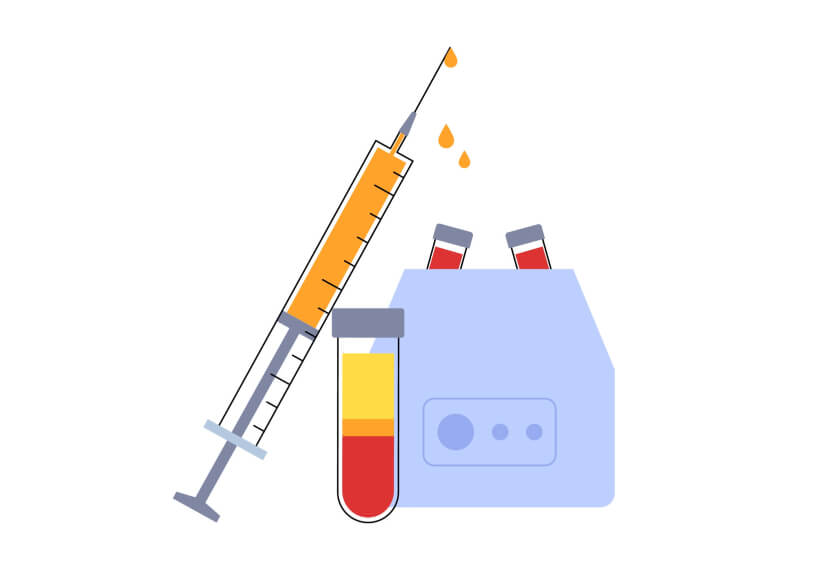
The reason patients with a history of drug abuse wouldn’t be able to benefit from PRP therapy for hair growth is because of how PRP works to promote hair growth. As we have established, PRP treatment has been effective for resolving different types of hair loss because of the concentrated platelets injected into your scalp skin, but it doesn’t cure the root cause of hair loss.
The serum patients will be receiving is made of plasma concentrated with platelets. Plasma is the liquid portion of the blood made with amino acids and acts as its medium. The platelets are the most important blood cell in this procedure because they boost the healing process. These growth factors promote the body’s regeneration because of their wound healing, tissue repair, and coagulating properties.
There are many reasons why patients experience hair problems, but most of them, if not all, attack the hair follicles and affect the stages of hair growth. Your hair follicles fail to grow hair and support the hair shaft because they either receive few nutrients or become attacked by your immune system. As a result, the stem cells become damaged and turn into skin, shrinking the hair follicles until they disappear.
When injected into the scalp, PRP reactivates dormant hair follicles to grow hair again. The growth factors stimulate hair growth and increase the stem cells in the hair follicles. It also boosts collagen production – this protein supports and keeps the hair strands intact in the hair follicles.
PRP treatment widens the hair follicles to improve blood flow and allow more nutrients and oxygen from the body to flow and support hair growth, giving you healthy hair. This makes the treatment produce positive results in clinical studies for androgenetic alopecia. This condition, also called male or female pattern baldness, is a common type of hair loss caused by genetics or environmental factors.
Procedure
PRP therapy for hair growth starts with a series of consultations and screening if the patient is an ideal candidate for the procedure. Doctors will also check their blood cell levels and blood pressure. If the patient is proven to be an ideal candidate, the experts can proceed with the procedure:
- Practitioners will do a blood draw to harvest a blood sample from the patient.
- The blood sample will be processed in a centrifuge.
- The centrifuge will separate the plasma concentrated with platelets from the rest of the blood cells.
- The platelet-rich plasma will be injected into the scalp.
As the treatment uses your own blood cells, there will be little to no risk of severe adverse effects, like an allergic reaction. But patients may expect common side effects from the tiny punctures from the injections and the integration of PRP into the scalp, so it’s still important to consult your doctor regularly throughout your recovery time. This procedure also requires minimal downtime, allowing patients to continue their daily activities with a few restrictions.
What Happens to Your Body with Drug Abuse
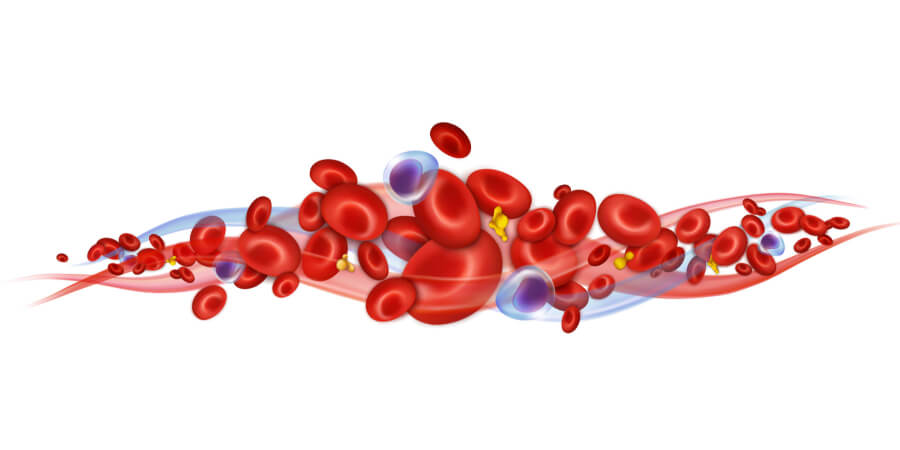
PRP therapy relies on the patient’s healthy state and immune system activity for it to give successful results. With drug abuse, patients constantly consume harmful levels of toxins that affect their bodies in many ways. As far as PRP treatment for hair growth is concerned, drug abuse causes hair loss and depletion of platelets.
1) Hair Loss
The harmful toxins from drug abuse cause lasting damage to the hair. According to clinical studies, illegal drugs stop the cell division that makes the hair follicles grow hair, turning these hair follicles dormant and interrupting the hair cycle. Some clinical studies also suggested the harmful chemicals from these drugs can collect in the hair in many ways while different strands go through different hair cycles.
One of the clinical trials about the effects of drug abuse on the hair also found that 97.2% of cocaine users have hair with a damaged keratin structure. Experts also find cuticle damage in 95.8% of cocaine abusers and 97.8% of LSD users.
2) Low Platelet Count
Drug abuse also causes a low platelet count, which may be an underlying symptom of a disease called thrombocytopenia. Clinical studies revealed that patients taking harmful amounts of heroin for 6 years had lower platelet levels than patients who’ve taken it less or not at all. The drug also affects the blood’s plasma levels.
Drugs That Can Cause Hair Loss and Low Platelets
It’s important to have a thorough screening for patients planning to seek PRP treatment for hair growth. There are also prescription drugs that can cause low platelet count or hair loss.
The drugs that may cause hair loss are the following:
- Adderall
- ACE inhibitors
- amphetamines
- antidepressants
- antifungal medications
- anti seizure medications
- beta-blockers
- birth control pills
- blood thinners
- cholesterol-lowering drugs
- cocaine
- famotidine (Pepcid)
- hormone replacement therapy (HRT)
- isotretinoin (Accutane)
- levodopa (Atamet)
- Methamphetamine
- marijuana
- naproxen (Naprosyn)
- nonsteroidal anti-inflammatory drugs (NSAIDs)
- steroids
Drugs that may cause drug-induced thrombocytopenia are the following:
- antidepressants
- anti-inflammatory drugs
- anti-epileptic drugs
- antimicrobials
- benzodiazepines
- cardiac medications
- cocaine
- diuretics
- gold salts
- heroin
- heparin
- retinoids
- quinine and quinidine
Inform your doctor if you’ve consumed some of these drugs, so they can properly screen you for PRP treatment for hair loss candidacy.
Other Reasons Why Some Patients Can’t Get PRP for Hair Treatment

Aside from drug abuse, some patients also aren’t ideal candidates for PRP treatment for hair growth because the effects of the therapy interfere with their medical condition. They may also be chain smokers or on blood-thinning medication.
1) Medical History
Some patients with specific medical conditions aren’t ideal candidates for PRP because it also interferes with the treatment. Here are some of the medical conditions that might affect the results of your PRP:
- acute or chronic infections
- cancer
- chronic liver disease
- chronic skin disease
- hypofibrinogenemia
- hemodynamic instability
- low platelet count
- metabolic disorder
- platelet dysfunction syndromes
- systemic disorder
- sepsis
- thyroid disease
Inform your doctor during your initial consultation if you have a history of these conditions or if you’re currently suffering from them. They will screen you more efficiently and may even suggest suitable hair loss treatment options for you.
2) Chain Smoking
Smoking causes hair loss, and tar from cigarettes impedes the body’s production of growth factors. PRP treatment for hair loss wouldn’t be an ideal treatment for hair loss for chain smokers because they might not provide healthy plasma and platelets.
These types of patients may not receive successful results from the procedure. Since the treatment does not address the root cause of hair loss, it might not also be a cost-effective option for chain smokers.
3) On Blood-Thinning Medication
Some patients experiencing heart conditions need blood-thinning medication. However, these types of medications may affect PRP treatment as it lowers platelet count.
How to Know If You’re A Candidate for PRP for Hair Treatment
Most patients may be ideal candidates for PRP treatment for hair restoration. Doctors will still screen if it’s the most suitable solution for your hair loss, depending on your medical condition, type of hair loss, and lifestyle.
1) Status of Hair Follicles
PRP therapy is the most effective for patients whose hair follicles are still working but are just dormant. Some hair follicles may already be dead due to several reasons. Your doctor will help you assess the status of your hair follicles and come up with the best treatment plan for your hair loss.
2) Severity of Baldness
Patients with early stages of hair loss will benefit more from PRP therapy — this treatment wouldn’t be able to restore the hair of patients with complete hair loss. Because of this, it’s important to receive treatment as soon as you see noticeable hair loss.
3) Presence of Malignant Infections
Patients with malignancy infections aren’t ideal candidates for receiving PRP injections. This condition causes tumor growth due to abnormal cell division. Malignancy can be transferred from one area to another, which is why PRP injections aren’t the best solution.
How to Improve Your PRP for Hair Treatment Candidacy
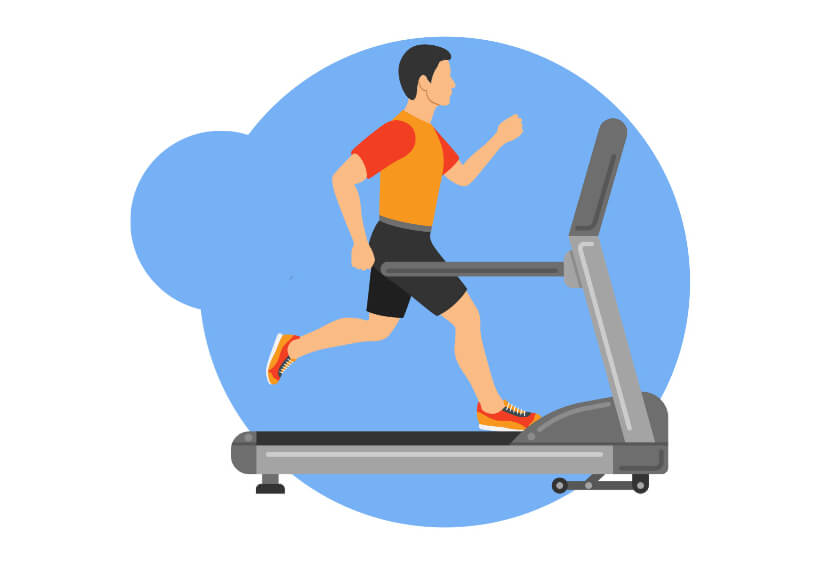
Those interested in receiving PRP treatment may still improve their candidacy, given they’re not suffering from any underlying medical condition. The key to a successful PRP is to be as healthy as possible: do regular exercise, improve diet, and avoid unhealthy habits.
1) Do High-Intensity Cardio Exercises
Do regular exercise, particularly high-intensity cardio exercises. PRP treatment relies on your blood cells, so this type of exercise will be suitable – it boosts your red blood cell production and immune system. The higher the red blood cells you produce, the more PRP will be harvested from you.
2) Improve Your Diet
Maintain a healthy diet and incorporate food that’s beneficial for your PRP production, like green leafy vegetables and food rich in B-vitamins. These types of food increase your red blood cells and hemoglobin, increase your immunity, regulate your hormones, and promote better blood circulation due to having lower cholesterol levels. Reduce your consumption of salty, sugary, and fatty food.
3) Avoid Drinking and Smoking
We’ve already established that drug abuse and smoking cause hair loss and affect the production of your platelets and stem cells, so it’s best to limit their consumption or best, avoid them altogether. Be sure to avoid alcoholic beverages before your PRP treatment because they also act as blood thinners.
Other Treatments for Hair Restoration
Aside from PRP, patients may still benefit from other hair loss treatment options. If you’re more comfortable with at-home treatments, you can consider the following:
- minoxidil
- finasteride
- herbal shampoo for hair growth
Patients may also benefit from other in-office treatments, like laser treatment or surgical procedures, like hair transplant procedures. Consult your doctor about these treatments for hair loss
Check Out High-Quality Beauty and Medical Supplies at FACE Med Store
Patients with a drug abuse history aren’t ideal candidates for PRP treatment for hair growth because drug abuse causes hair loss and low platelet count. With treatments like PRP therapy, using the best equipment is also key to the procedure’s success.
FACE Med Store is a trusted partner for providing quality beauty and medical supplies to many practices. We offer the best supplies at competitive prices. Get in touch with us today to know more about our stock list or browse our website to see our updated catalog.

